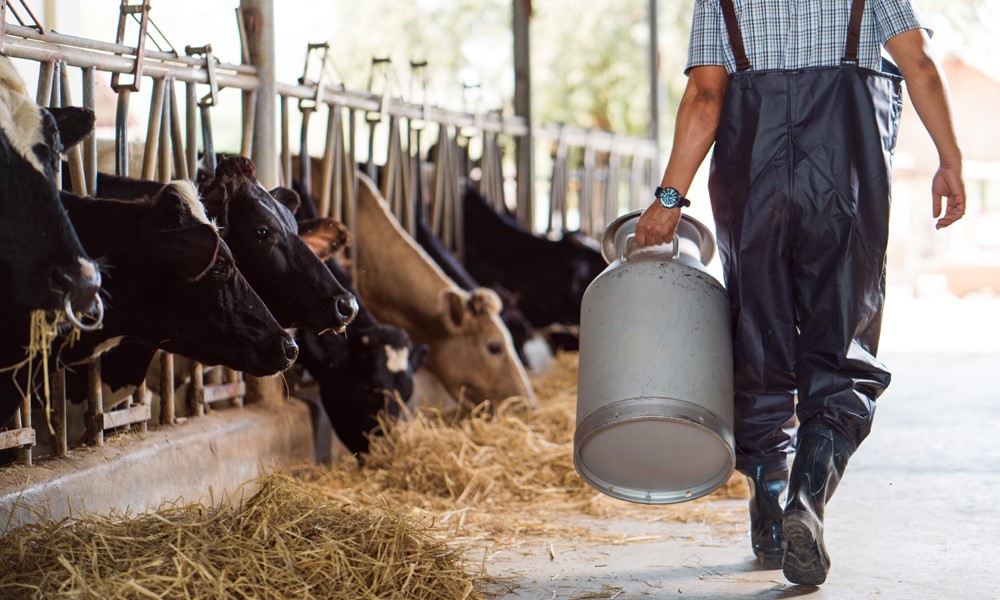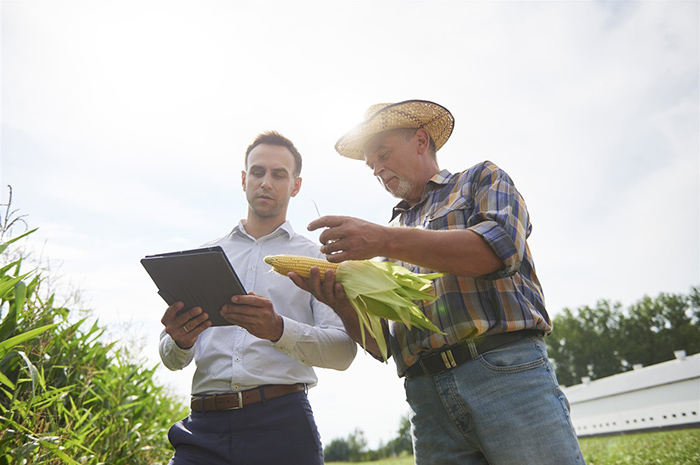When it comes down to it, a successful farmer is successful in running a business. One thing that successful business owners do is invest their profits back into their business.
While "investing" conjures images of sitting across from a financial planner as you fill out a questionnaire about your tolerance for risk, investing also refers to growing your farm's assets. Investing is one of the pillars of farm business management.
To grow your operation, put yourself in a stronger financial position, and gain financial independence, investing a portion of your profits into your farm is the way to go. In most cases, these decisions should be several months or even years in the making. These investments would originate from the future goals you outlined in your business plan. When you assign purpose to your profits, it puts things into clarity, lets you recognize opportunities and helps keep the momentum.
Traditional business investments
If you're investing in your farm, it's highly likely you'll be looking at capital projects and land. Here's a quick look at both.
Capital projects
Older buildings and farms go hand in hand. That's because farmers are masterful at finding creative solutions to re purposing farm structures and keeping old machines humming. That said, it's unlikely even the most frugal farmer can make it through a 20- or 30-year farming career without investing in capital improvements.
Capital improvements on the farm can mean many things. Maybe you're acquiring or replacing machinery, so you can do your work more efficiently, with greater precision and increased production. It can mean improving or repairing existing buildings, or building a new facility altogether.
Of course, these projects can make it possible to expand your current operation, modernize (so you can get more done in less time), diversify or even switch to a new product. Use the cash to make payments and cover new inputs by saving up the profits toward a down payment on a capital or equipment loan.
Land
They say you can't go wrong with land. Farmland is limited, so if the opportunity presents itself, it's worthy of serious consideration. The advantages of owning land are many. It puts you more in control of your operation and your destiny — and eliminates worry about the what-ifs about a landlord's future actions. It will help you build equity, making you a more attractive lending candidate.
Other ways to invest profits back into your enterprise
With investing, you're not limited to acquiring things. Here are a few more options to consider.
Stretching cash flow
Without adequate cash flow, your farming operation will literally come to a halt. All farmers have to plan their finances carefully to cover the lean months. However, if your enterprise lacks cash reserves to see you through a full lean year, building them is a way to minimize your reliance on revolving credit.
Paying down debt
Paying off loans for vehicles, machinery, structure and land ahead of schedule is one way to invest your operation, because as the principal shrinks, both your equity and net worth increase. Another reason to pay down debt is a lower balance can put you in a better financial position to pursue new loans for equipment, facilities and land. If you can get the new loan for better terms than what you're presently paying, it's a smart move. The downside is paying ahead can tie up your cash. Before you make those extra payments, make sure you have enough.
Hire help, outsource tasks
Adding a farmhand or contracting for professional services (like accounting) is also a way to invest in your business. Maybe you'd love to look into cover crops or conservation tillage, but the farm and office tasks keep you working late into the night. Getting outside help can give hours back into your day, and provide you with time to pursue other ambitions for your farm.
Invest in yourself
Did you ever think of yourself as one of the top assets in the farm? It's true. Taking classes, earning certifications or even a college degree can build (or update) the skills and practical knowledge you need to be a successful farmer.
4 questions to ask before you invest in your farming operation
When it comes time to invest in your operation, ask yourself a few questions.
-
- Investments come at a cost, so it's crucial to take time to understand this: How will the investment affect your financial position?
- What will the asset do to your production costs?
- Know your worst-case scenario. During the not-so-prosperous years, will the expenses choke off your cash?
- Do you understand the tax implications? Capital improvements allow you to claim tax deductions for depreciation. Review your plans with your accountant or tax person to get their guidance so you can make an informed choice.
At Minnwest Bank, our ag lenders are members of your community, and we're committed to helping your farm thrive. Schedule an appointment today.


